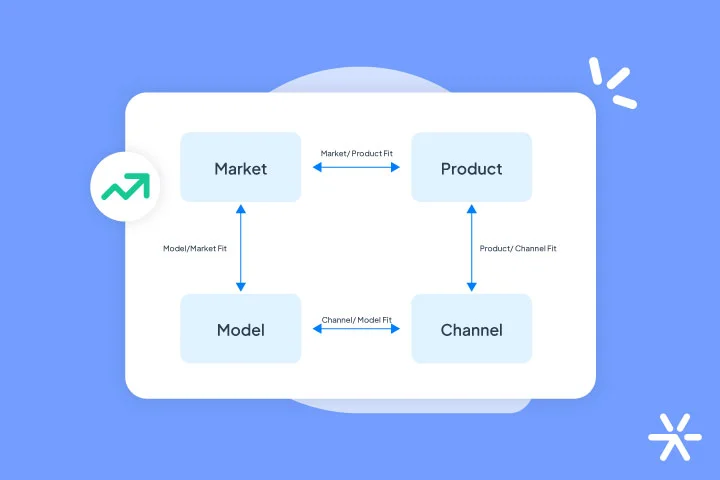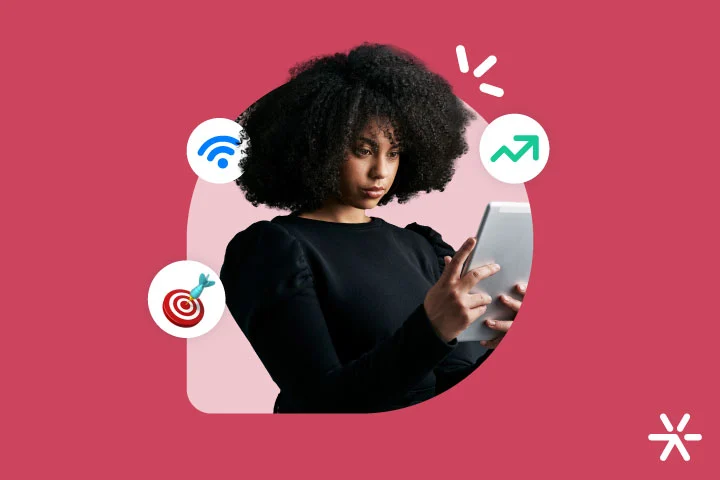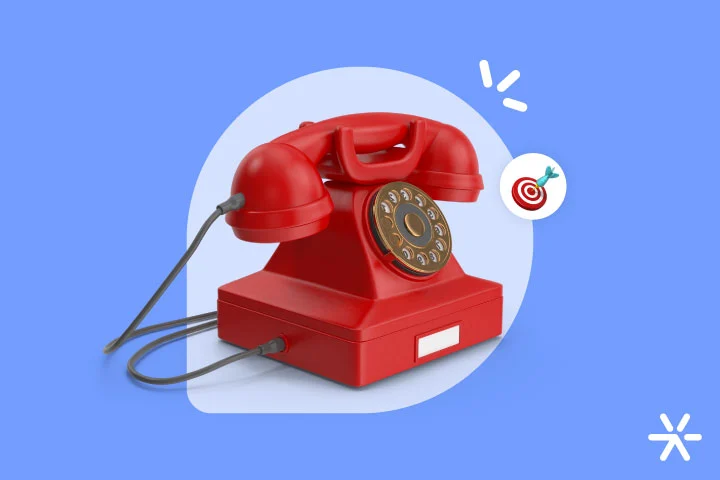50 Lead Qualification Questions and Where to Use Them
It’s typical: you have the whole campaign ready to go, a month of hard work behind you, and there’s just one last detail left – the lead qualification questions to put in your lead capture tool.
You know everything about your target audience, the campaign’s objectives, have a good idea of the ROI, and everything that involves the success of your action. You want to qualify leads, but what do you want to know about them?
All actions to qualify your lead base are great for your company. The more information you have about your potential customers, the better. But some details are more important than others, depending on your segment.
The subject of today’s article is precisely that. Let’s talk, in the first part, about lead qualification in general. And then we’ll bring 50 lead qualification questions organized by themes, with explanations.
Ready? Let’s get started:
First: what is a lead?

A lead is anyone who shares their information with your company with the intent of keeping the conversation flowing.
But here’s the second part: intention matters a lot. If you have a physical store and request an email registration, you haven’t converted a lead if the registration is mandatory.
A lead becomes a lead because they wanted to, not out of obligation. Leads typically share their information with your company because they benefit from it in some way.
Some cases that lead an ordinary person to become a lead:
- Downloading a lead magnet (e-book, report, etc.)
- Requesting a quote;
- Joining a WhatsApp or Telegram group;
- Subscribing to a newsletter;
- Participating in a promotion.
Among many others. People become leads because they are interested in something you are offering. And this interest is genuine.
But not all leads are the same. There are several types of leads at different stages in your sales funnel. Here’s what they are:
What are the types of leads?
I wrote an article some time ago discussing the technical definitions of a lead according to unified marketing and sales methodologies. This article shows each type of lead with a more in-depth explanation.
A brief summary: the types of leads are related to how close they are to making a purchase with you.
Or, in technical terms, each type of lead is at a specific moment in the sales funnel. They are:
- Lead: someone who has shared information with your company;
- Qualified lead: someone who has shared information with you, shown interest in the content you shared, and is within your target audience;
- Marketing qualified lead (MQL): the most advanced lead in the sales funnel – the information they left shows that they have a good chance of becoming a customer and therefore needs to be applied in marketing actions;
- Sales accepted lead (SAL): the lead who, according to their interaction history, is ready to be passed to the sales department;
- Sales qualified lead (SQL): the lead who has reached the bottom of the funnel – they have the profile, are interested in your brand, have worked with the marketing and sales team, and are ready to close a deal.
These are the technical definitions of a lead. And even though they are technical, they are not so complicated to understand, are they?
Basically, leads are categorized according to their stage in the marketing and sales funnels. The more information they provide about their interests, needs, and profile, the better it will be for the sale to continue.
🔎 Read also: How to Capture Sales Qualified Leads in 2024
How to qualify a lead?
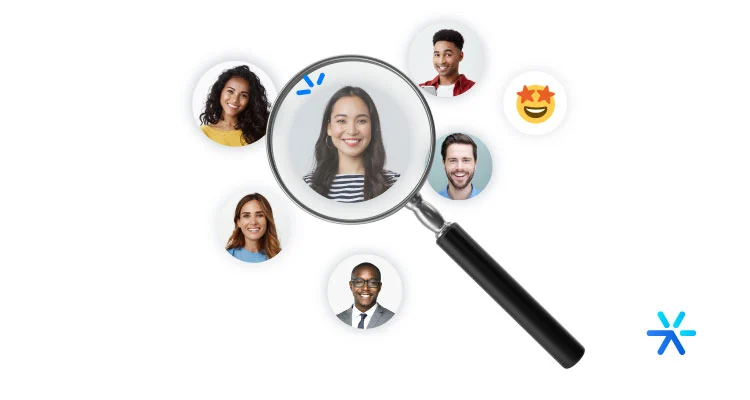
A qualified lead is the second type of lead we showed above. Leads in general, before being qualified, are small points of chaos in your strategy.
Chaos because unqualified leads can come from various places. An example to illustrate better: you set up a booth at a great marketing event, and there you receive several people who leave their email to subscribe to your newsletter.
Are all these people qualified leads? Of course not. The list will contain many “cold” leads – those you don’t know much about – and people who don’t fit your ideal customer profile (also called ICP – ideal customer profile).
The qualification of these contacts occurs through offers of new materials, invitations to webinars and in-person events, email interactions, etc.
And of course: in each of these interactions, your lead provides more information that also determines their qualification. See a little more about that:
Criteria for lead qualification
Still in the RD Summit example, think of two people from different companies: Mariana and Leocádio.
You didn’t know either of them, and both left their emails at the booth to subscribe to your company’s newsletter. Great: 2 more leads!
Immediately after the event, you set up marketing automations to offer more materials. And for the download of these materials, your tool asked for more information about Mariana and Leocádio’s company.
That is: lead qualification questions.
It turns out that Leocádio, even though he was very engaged with your content, worked in a 10-person company. And one of the criteria you set to qualify a lead required a company with a minimum of 50 people – coincidentally, Mariana’s company.
Who will go through the sales funnel in this case? Leocádio didn’t make it, but Mariana did.
Your company needs to set criteria to qualify a lead, and each company will have its own. Demographic, financial criteria, etc.
Including others that have nothing to do with the company as a client but with the lead itself – it’s the famous “am I talking to the right person to close deals?”
These criteria are expressed through lead qualification questions.
With that, we conclude the first part of the article. Let’s move on to our examples of questions?
50 lead qualification questions
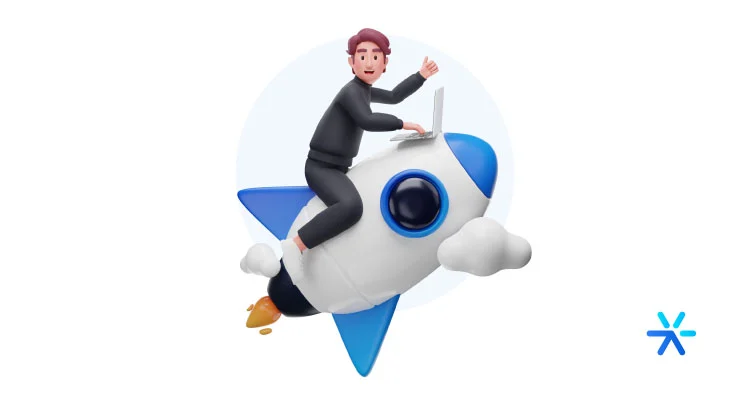
So far, we’ve talked about what a lead is, what types of leads there are, and what criteria define who is a qualified lead and who isn’t.
This is the moment we’re going to get practical once and for all. We’ve separated 5 general categories of criteria, and each one comes with 10 questions for you to use.
The criteria we chose are:
- Geographical qualification: for the case where your lead’s location affects their qualification. This criterion is suitable for local service companies that use on-site labor;
- Professional qualification: to understand if you’re talking to the person who actually has the ability to close a deal, the decision-maker;
- Commercial qualification: information that will determine sales argument points in the future. It is a qualification done in conjunction with others;
- Time and money: to determine the urgency of hiring a service you offer (if applicable) and to determine the budget;
- Decision-makers: to understand how your qualified lead makes purchasing decisions.
There are no superior or inferior criteria. What matters here is what makes the most sense for your company.
Some of the lead qualification questions we are bringing need to be worked together with others, but avoid asking too many questions. And whenever possible, make the act of responding simpler – one multiple-choice and one open-ended, for example.
Always remember: it’s not an entrance exam, and even a single answer can be enough to qualify your lead. It all depends on your company’s needs.
Geographical qualification
These are the lead qualification questions that will determine where in Brazil they are, what their transportation habits are, etc.
Note that, although we offer 10 questions here, you won’t need all of them to qualify. One is enough, two is great, three is too much.
The lead qualification questions in the geographical criterion are:
- Where do you live?
- Do you live and work in different cities?
- Where is your company located?
- How much time do you spend in traffic?
- Do you use public transport to get to your company?
- Do you work remotely?
- Do you frequently use hotels?
- Do you receive gasoline assistance or transportation vouchers?
- What is lacking in your city?
- Do you live in [insert country]?
These are questions related to everything involving location. Find in the examples one that makes a lot of sense for your business and use it without fear!
🔎 Read also: Lead Generation Blog - 10 Essential Strategies
Professional qualification

These are lead qualification questions related to their work. Their reality, their routine even within the company.
Usually, in lead qualification questions, most companies use geographic and professional qualification as the initial basic parameter. Then, as the lead progresses through the sales funnel, more questions are asked.
This is an interesting point to address. Despite the difference between lead and qualified lead being related to information, you can also continue to qualify the lead throughout the entire sales funnel.
In fact, it’s even good that you do. When they reach the sales team stages, their profile will be so well built that the salespeople will have an easy time negotiating.
The lead qualification questions in the professional criterion are:
- What is your job title?
- What department are you in?
- Are you responsible for purchases in the company?
- How many people do you manage?
- How many people work in your company?
- What is your industry?
- Does your company have branches?
- How many people are in your team?
- What is the best service your company provides?
- Do you work in retail or services?
Commercial qualification
In the previous section, we mentioned that lead qualification questions don’t stop. Wherever you can insert them to have more information, the better.
These commercial qualification questions were imagined with that in mind. They are questions more focused on sales reality, which will greatly help the team understand what the lead really needs.
The lead qualification questions in the commercial criterion are:
- Which of our products do you know?
- How did you hear about us?
- What is the biggest challenge in your company today?
- What is your preferred contact channel?
- Have you used any of our products before?
- Do you currently use another company’s services?
- Are you satisfied with the service you currently receive?
- What are your plans with our product?
- What is your budget?
- What are your biggest challenges for next year?
But note: these questions can also be asked at the beginning of your qualification. It all depends on your strategy and what you’re offering.
🔎 Read also: How to Use a Chatbot in Digital Marketing? Successful Examples
Time and money

The lead qualification questions you’re about to see are probably the most crucial to understand if the lead is really a good fit for your company. If they fit the ideal customer profile you have.
They relate to the lead’s investment availability, which will already give you a great idea if it’s worth working on them, and also the time they have available to put your services into practice. And of course: how soon they expect results.
Time is quite important for some segments. For example: agencies specialized in content cannot promise results in too short a time frame.
So, if a lead says they are urgent for results, they don’t fit so well into the ideal client profile in this example.
Here are some lead qualification questions about time and money:
- How urgent is your hiring?
- How soon do you expect results?
- How long does a sale take in your company?
- How long does your department take to conceptualize a new product/service?
- How long does your product go from development to sales?
- How long have you been looking for a solution to your problem?
- What is your annual revenue?
- Which of our price plans best describes you?
- How much does your company spend on [service]?
Decision-makers
These lead qualification questions are the most important for the sales team. They will determine what the lead needs to close a deal.
And also, of course, if the lead is ready to hear a proposal and if they are the right person to hear it.
The lead qualification questions to identify decision-makers are:
- What are your main success metrics?
- How do you choose your suppliers?
- Do you prefer discounts or payment terms?
- What is your preferred payment method?
- What is the biggest obstacle to closing a sale?
- What are you looking to solve in your company?
- Who can we contact?
- Do you make hiring decisions in your company?
- What are your criteria for making a hiring decision?
- Who else might be interested in more information about our company?
How to qualify your lead without asking too much?
Imagine having to write practically an essay in a form to download an e-book. Not ideal, right?
Your lead feels the same way. Asking too many questions lowers your conversion rate on any material or contact page.
But at the same time, you need to qualify the lead as much as possible to sell better each time. It’s a paradox: in conversion forms, many questions lower the conversion rate. And few questions don’t qualify a lead. How to solve?
Simple: don’t use conversion forms. The very model of forms is a relic of a time when it wasn’t easy to have a more personalized and human contact with your visitors and leads.
Today, that exists. Leadster uses chatbot technology, and lead qualification questions are asked in a natural way, easy to answer. It’s a conversation, not an interrogation. That’s why your visitor feels more comfortable, and conversion rates tend to rise. 📈
Begin your free trial today and stop asking questions: instead, start conversations.
See you there!



